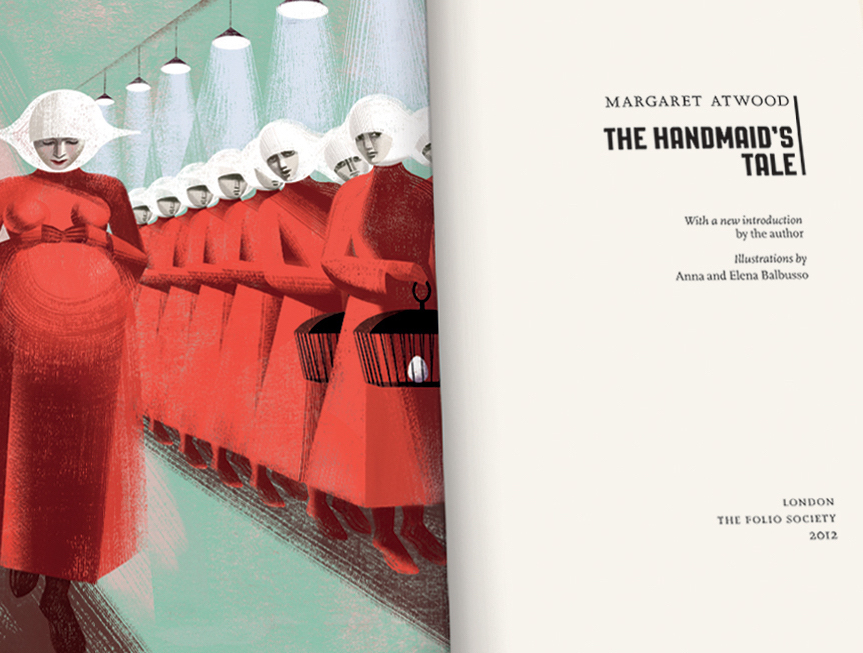The Handmaid’s Tale has not been out of print since it was first published, back in 1985. It has sold millions of copies worldwide and has appeared in a bewildering number of translations and editions. It has become a sort of tag for those writing about shifts towards policies aimed at controlling women, and especially women’s bodies and reproductive functions: “Like something out of The Handmaid’s Tale” and “Here comes The Handmaid’s Tale” have become familiar phrases. It has been expelled from high schools, and has inspired odd website blogs discussing its descriptions of the repression of women as if they were recipes. People—not only women—have sent me photographs of their bodies with phrases from The Handmaid’s Tale tattooed upon them, Nolite te bastardes carborundorum and Are there any questions? being the most frequent. The book has had several dramatic incarnations, a film (with screenplay by Harold Pinter and direction by Volker Schlöndorff) and an opera (by Poul Ruders) among them. Revelers dress up as Handmaids on Halloween and also for protest marches—these two uses of its costumes mirroring its doubleness. Is it entertainment or dire political prophecy? Can it be both?
I did not anticipate any of this when I was writing the book.
I began this book almost 30 years ago, in the spring of 1984, while living in West Berlin—still encircled, at that time, by the infamous Berlin Wall. The book was not called The Handmaid’s Tale at first—it was called Offred—but I note in my journal that its name changed on January 3, 1985, when almost 150 pages had been written.
That’s about all I can note, however. Although I made numerous journal entries about the book I’d been writing just before beginning The Handmaid’s Tale—a many-layered saga set in Latin America that became waterlogged and had to be set adrift—I don’t find myself writing much at all about The Handmaid’s Tale. ... [mehr] https://lithub.com/margaret-atwood-on-how-she-came-to-write-the-handmaids-tale/

Keine Kommentare:
Kommentar veröffentlichen